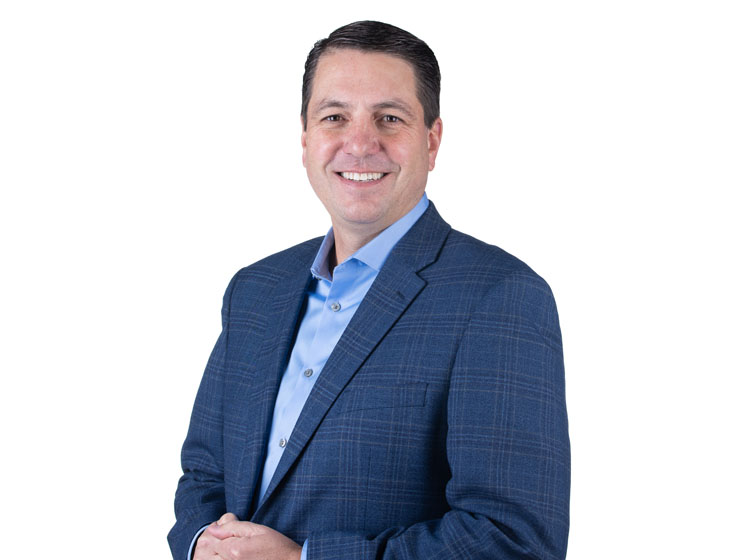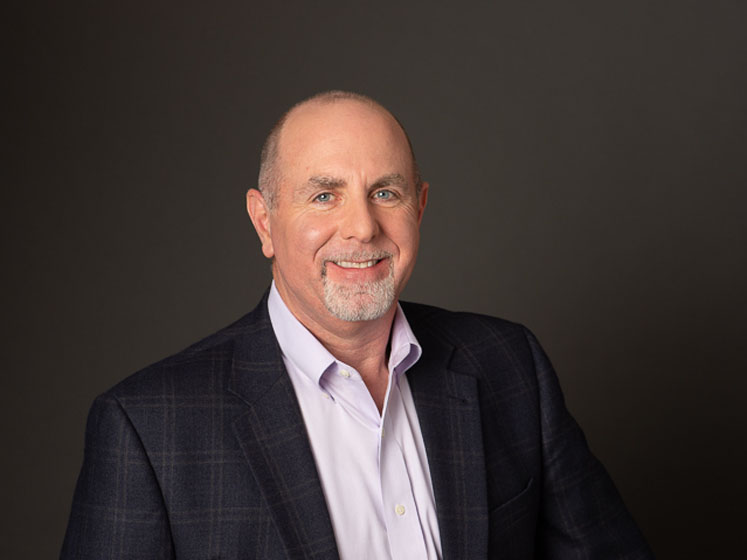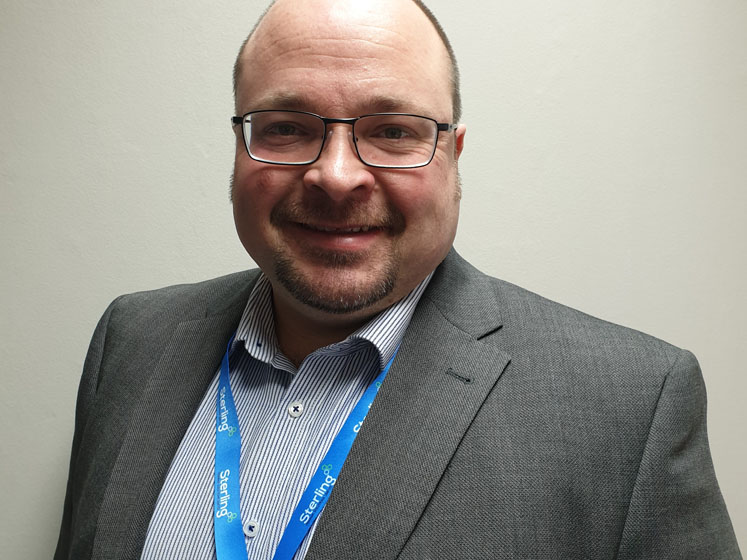The drug manufacturing industry is increasingly enlisting outsourcing partners to address a broad range of megatrends, including globalisation, sustainability, higher levels of pharmaceutical consumption and the continuity and integrity of the supply chain to improve both patient access and security of outcome.
The current commercial realities of developing and manufacturing pharmaceuticals have never been more complex. As many organisations rely on CMOs and CDMOs to meet ever-more stringent requirements, I ask the panel what they’re doing to address flexibility and operational excellence demands of their customers.
“The marketplace has changed during the last few years and expectations in terms of speed and delivery are becoming a must-have. In much the same way that quality is a critical offering in the market, both are now expected as a minimum,” suggests Britton Jimenez, VP Business Development, Metrics Contract Services.

Britton Jimenez
“When looking for an outsourcing partner, sponsors want a history of quality as a gating requirement. If it’s there, the conversation pivots to delivery expectations. Many sponsors will now ask how much it costs to meet a specific deliverable, which often involves an expedited schedule. Not only does this puts significant pressure on the industry, we absolutely must have both the capacity and the resources to deliver.”
“Often,” he adds, “providers cannot deliver against these rapid timelines because of antiquated processes or a lack of the appropriate resources and capacity, which then sets everyone up for failure. CDMOs need to continue to innovate and build out capacity that meets demand. At the same time, sponsors need to challenge themselves and ask whether they are doing everything they can to ensure that their partner CDMO will be successful.”
“A successful CDMO–partner relationship should always start with the understanding that we’re obligated to the patient,” says Tom Wilson, Contract Manufacturing Lead at Pfizer CentreOne: “It doesn’t matter what product we’re working on; we always think about getting the medicine to the patients who need them.”

Tom Wilson
“CDMOs are moving away from a procurement model and towards one that prioritises collaboration and engagement. By focusing on relationship building with open communication, trust and transparency, partnerships are created that allow both parties to manage expectations, understand risks and establish risk mitigation plans.”
“One of the great things about the CDMO–partner relationship is that it brings the scientific and engineering prowess of both organisations together. By brainstorming as a team, they are able to troubleshoot problems and identify new opportunities. And it’s the capture of those opportunities that leads to operational excellence,” he continues.
“Recruiting the right talent is also essential for operational excellence: this applies to both developing new medicines and cGMP activities. It’s not just about finding the right people and keeping them engaged right now, CDMOs also need to take the next generation of talent into consideration."
"Relationships with universities and fellowship opportunities often provide strong candidates, for example. CDMOs should also think about the types of technical training they will continue to receive and ask the question: how do we, as CDMOs in the industry, work to attract those people?”
“Both the pharma and biopharma industries, as well as the outsourcing market, have seen a lot of change in recent years,” adds James Choi, Senior VP, Chief Information and Marketing Officer, Head of Investor Relations, Samsung Biologics.

James Choi
“With more and more bio products entering the drug pipeline, companies either don’t have the internal resources to efficiently cater to all of their projects or they lack the understanding to progress new biological entities (NBEs) through development and into commercialisation."
"With this in mind, more demand is being placed on CDMOs to provide flexible access to manufacturing capacity, comprehensive development support and improved operational efficiency to ensure on-time, in-full delivery.”
“To meet this demand,” he continues, “many CDMOs have communicated capacity expansion plans that will allow them to provide faster and better services to their customers. For example, at Samsung Biologics, we recently started construction work on our new facility: Plant 4."
"Expected to be partially operational by the end of 2022, the new facility will be the world’s largest manufacturing plant for biopharmaceuticals and has been designed to be easily optimised by our experienced engineers to accommodate changing requirements.”
“We will offer multiple operational scales to optimise production efficiency and Plant 4’s modular design will ensure as much flexibility as possible for our customers. Finally, we’re also deploying advanced digital solutions, including our Enterprise Quality Unified Information System (EQUIS) and manufacturing execution system (MES), to automate as many processes as possible.”
Agility and capacity
MedPharm’s Vice President of Business Development, Lynn Allen, advises that the need for flexibility is especially important during early stage development when activities are more fluid.
“CMOs and CDMOs that offer full time equivalent (FTE) models give sponsors the flexibility to make changes quickly and take development where it needs to go at a pace that’s not slowed down by proposal administration,” she says.

Lynn Allen
“This enables the sponsor and CDMO to adapt the scope of work based on the latest data or to adjust work activities based on unexpected outcomes during development.” FTE programmes take advantage of the experience and services of the service provider while allowing the sponsor to direct resources without having to update contracts or scope of work.
“To meet customer demands for both flexibility and operational excellence, CDMOs are investing heavily in capacity,” adds Stefan Beyer, President and Managing Director, Vibalogics: “They are using platforms whenever possible during process development, analytical testing and tech transfer to optimise efficiency and reduce potential downtime or delays."
"They are also establishing robust quality systems that allow for later-stage changes without jeopardising quality and product safety … and ensuring good manufacturing practice (GMP) compliance.”

Stefan Beyer
“In the viral vector space, for instance, there is an urgent need to address the flexibility of processing capacity while also maintaining optimum operational excellence for both product development and manufacturing."
"It is especially vital to prevent and mitigate the disconnect between upstream (USP) and downstream (DSP) processing capacity that all too often occurs in biopharmaceutical production. Issues with downstream capacity have ramifications for USP, resulting in companies not being able to utilise their earlier phase resources while waiting for downstream capacity to be freed up.”
“To tackle this problem, a growing number of CDMOs that specialise in viral vector products are working to support biopharma companies by proactively expanding their own capacity to meet future demand. Such investment and attention to detail, in terms of the real-world functionality of new sites, can go a long way towards providing viral vector drug companies with the agile capacity that they need to deliver their projects as and when they need them,” he concludes.
Providing the final word, James Rogers, Head of Manufacturing and Supply at Sterling Pharma Solutions, observes: “Traditional ways of manufacturing active pharmaceutical ingredients (APIs) are tried and tested. However, CDMOs are increasingly exploring how new technologies can support them to produce the same high-quality ingredients more effectively and efficiently than ever before, helping customers to drive down manufacturing costs.”
“Sterling, for example, is collaborating with Professor Baxendale, an academic leader in flow chemistry, to improve our continuous manufacturing processes and help us to refine our investment plans in this area. This will deliver enhanced productivity and meet the flexibility and efficiency needs of our customers.”

James Rogers
“Other measures being taken to enhance agility include how we structure the business to provide 24/7 operational excellence. At Sterling, we have invested heavily in a dedicated team of shift chemists."
"This team of knowledgeable and experienced personnel supports the traditional operationally focused shift teams to ensure that processes are monitored and issues are resolved as they occur, rather than waiting for day-shift expertise to be on hand. This has allowed Sterling to achieve a high level of right-first-time process scale-up.”
“Data is crucial to enhance flexibility and operational excellence,” he continues: “The more data we have — and the richer and more insightful the data — the better our decisions will be. Data forms the basis of our decision making; by harnessing it correctly, we will be able to clearly understand what we need to improve and identify how improvements can be made.”
“Machine learning (ML) is another area that can support CDMOs by continually improving operational excellence. Sterling, for instance, is working with partners to develop a solution that will allow us to identify when process parameters are beginning to deviate from set limits and take appropriate steps to prevent an out-of-specification or out-of-trend event occurring."
"This differs from traditional process control networks by integrating historic events into the actions the systems take, making for faster and more accurate interventions. Such technology supports operational excellence by reducing variation in and between batches of API and optimising quality.”
“Finally, it’s important to have oversight of such developments to ensure they all complement each other and truly deliver on their flexibility and operational excellence promise. For many CDMOs, this means having a Process Improvement team in place."
"They are responsible for establishing and driving the strategy behind operational enhancements and will be key to delivering more effective processes for customers in the future.”
